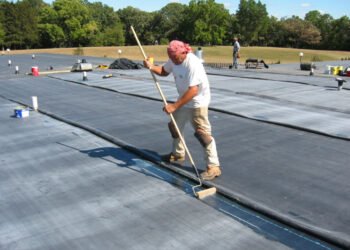Fulfilling the American dream of buying a home is one of the greatest feelings. It marks a turnaround in how you deal with money and investments. As a capital-intensive project, it’s important that you choose the right location and property to meet your needs, and this is probably one more reason you should be working with a realtor Cary. However, whether you’ve chosen to work with a realtor or not, the important factors to consider before signing the dotted lines on a new home purchase include the following;
Location
Location plays a very important role in the value and accessibility of the property you intend to purchase. The closer the property is to amenities, your job, and other important locations – the better.
You want to make sure that your property is also close to healthcare facilities, schools (if you already have a family or intend to have one), fun spots, and more.
A home located far away from your daily commute locations can put a strain on the quality of your life and finances. You may find yourself spending more time on the road or spending more money commuting from work, the gym, healthcare facilities, and other important locations.
In choosing a perfect location for your home, you should also consider proximity to local convenience stores, parks, shopping centers, and restaurants. The closer your property is to these important amenities, the better the quality of your life.
Budget and Affordability
All purchases hinge on budget and affordability. Homeownership is a tremendously financially intensive project that should be undertaken with proper financial planning and budgeting.
While you may have come up with a significant amount to pay as a down payment, you should also consider that you’ll have to pay back a certain amount monthly until the house is fully paid for.
Keeping the monthly repayment and additional costs in mind, ensure that you’ve done your monthly calculation and are sure that your current and future finances can accommodate the additional costs of servicing your mortgage loan.
To get a full understanding of your monthly spending after taking out the mortgage loan, start by considering your current monthly financial obligations. You should also consider how much you have in savings, debts to pay, as well as other additional homeownership costs like property taxes, insurance, and maintenance costs.
Home Size and Layout
Buying a home has an element of the present and the future in it, especially if you’re looking to live in it for a long time.
Before purchasing any property, consider its size and layout, as well as how it supports your current and future family plans. You may also consider what the property will look like in the coming years in relation to your age and possible health or accessibility needs.
In considering the size and layout, pay attention to the rooms and bathrooms. Larger families require more rooms and a decent number of bathrooms to support the family on busy days.
You should also consider your working situation, that is, if you work from home or remotely. Most remote workers are now interested in properties with home offices to support their remote working needs.
In all, you should be able to visualize yourself living in the property comfortably and conveniently before signing the dotted lines.
Property’s Condition
The current condition of the property during purchase will determine how much you’ll spend on it immediately or in the future. New builds may be expensive but often guarantee lower maintenance costs.
Assess the condition of the properties you visit to avoid unexpected repair costs. Consider factors such as the age of the house, the condition of the roof, plumbing, electrical systems, and the overall maintenance history. If you’re not comfortable with significant repairs or renovations, look for move-in ready homes or consider new construction.
Outdoor Space
Consider your preferences regarding outdoor space before signing the dotted lines. Genuinely answer questions relating to whether you love large backyards.
If you’re not the outdoor type or the career-driven busy type, it may be best to avoid large gardens or backyards as they are often expensive to maintain.
Determine your appetite. A low-maintenance patio or balcony is best suited to busy homeowners, while larger yards and gardens are better for those with gardening interests.
The Property’s Energy Efficiency
Energy-efficient homes not only help reduce environmental impact but also save you money on utility bills. Look for properties with energy-efficient features such as proper insulation, double-pane windows, and energy-efficient appliances.
Additional considerations include the home’s orientation, natural lighting, and the potential for renewable energy sources like solar panels.
Future Resale Value
Not many homeowners plan to resell their homes, however, it is comforting to know that your home will retain its value in the future.
Important factors contributing to resale value include the location (in desirable neighborhoods), energy-efficient installations, landscape, home size, layout and design, and other additions.
If you’re looking for your new perfect home, we’re confident these excellent tips will steer you in the right direction.












